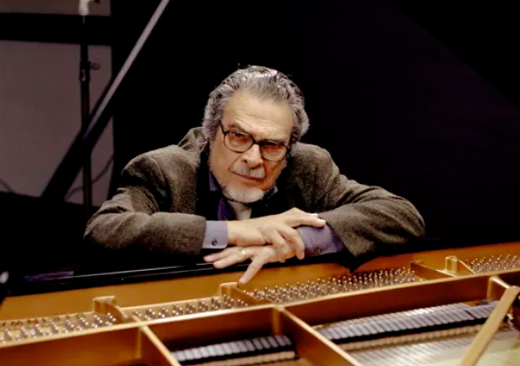Plus: We peek into the wonderful world of the zither
Apologies for the short notice, but if you catch this right away, you may still be able to register (yes, preregistration is required) for the upcoming installment in the Chamber Music Society of Lincoln Center's terrific (and free, though of course donations are welcome) Musical Heritage series, this Monday (April 5), from 7:30 to 9pm, this one devoted to one of the most commanding musical figures of the 20th century, Pablo Casals.
UPDATE: As of Friday, April 9, CMS's Casals Musical Heritage program can be viewed here (with links to all the other CMS Musical Heritage programs).
by Ken
Here's how the CMS blurb puts it:
The great Catalan cellist Pablo Casals (1876-1973) stands alone as arguably the most influential and universally revered instrumentalist of all time. The first cellist in history to recognize Bach's Six Solo Suites as great music, and the first to record them, is only one of the musical milestones of this extraordinary man, who not only dominated cello playing for more than half a century, but also served as an uncompromising and indisputable voice of social conscience. In this exploration of Casals the musician and the man, cellist and CMS Artistic Director David Finckel leads a panel of distinguished musicians -- Dmitri Atapine, Arnold Steinhardt, Jaime Laredo, and Timothy Eddy -- who, either through direct contact or inherited influence, have been changed by the art of Casals forever.This is going a long ways, "arguably the most influential and universally revered instrumentalist of all time," but I'm not inclined to disagree, even though strictly as a cellist he was a long way from a favorite of mine. Still, the moral as well as musical force is undeniable, and so is the influence, not just among the vast number of musicians who came in direct contact with him, notably at his annual summer festivals, but among pretty much all the others, who were influenced by -- and, yes, revered -- him at a distance.
I SHOULD HAVE HAD THE SENSE TO SOUND AN EARLIER
ALERT (NOT JUST GET MYSELF SIGNED UP PRONTO!)
MEANWHILE, DON'T NEGLECT ALL THAT JUICY
CMS MATERIAL ON YOUTUBE AND THE CMS WEBSITE
American pianist Leon Fleisher (1928-2020), despite a career curtailed by hand injury at the age of only thirty-six, leaves a legacy as a titan among pianists and indeed among all musicians. With a lineage of teachers reaching directly back to Beethoven, Fleisher commanded a position of unrivalled authority in the interpretation of the greatest classical composers, from Mozart to Beethoven to Brahms. His recordings of the concertos of Beethoven and Brahms are definitive and essential references for all pianists, and his impact as the most insightful and eloquent of teachers is legendary. Pianist Gloria Chien and violinist Soovin Kim reveal the life and work of one of the greatest artists of our age.Before the world was affliceted with "influencers," there were remarkable individuals who, by the force of their character and their ability to pass on the wealth of their knowledge and experience exerted legitimate influence. There's no more visible example than Pablo Casals, but the Guarneri Quartet members all taught extensively both during and after their Guarneri careers, and the great pianist Leon Fleisher, despite the hand injury that so sadly limited his performing career, became a notable teacher in addition to performing as a chamber musician and left-handed pianist, not to mention fighting his way back to two-handed performance.
TO ZITHER OR NOT TO ZITHER?
And other important questions headed for SC treatment
When we think of the zither, we think of course of --
Yes, it's the legendary zitherer (zitherist? uh, zither player) Anton Karas, playing the theme from The Third Man. But what else do we think of? How about this?
You recognize this, right? Or maybe you're thinking, "I know that! It's . . . um . . ." Hint: It comes right after the gorgeous cello solo, the briefer horn intervention, and of course the mad flute cadenza.
Still no? Okay, here it is in context:
Vienna Philharmonic, Herbert von Karajan, cond. Decca, recorded 1959
I'm sorry, that's all we have time for today. Next time we'll hear, you know, what comes next,* and also answer the question: So what if you don't have a zither? All in pursuit of some more serious inquiries, relative to the Vienna New Year's Concert. (Yes, finally!)
PLUS -- This is just some of the Sunday Classics activity originally intended for this week, along with some other shorter reports. At the moment I'm still hopeful.)
#
*OK, OK, IF YOU REALLY WANT TO HEAR WHAT COMES NEXT --
(JUST DON'T TELL ANYBODY!)
Vienna Philharmonic, Herbert von Karajan, cond. Decca, recorded 1959
#


No comments:
Post a Comment